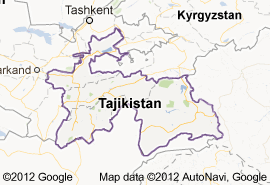London/Dushanbe: In a report released today, Amnesty International alleged that the “torture, beatings and other ill-treatment are routine in places of detention in Tajikistan and thrive in a climate of widespread corruption and impunity.
The UK-based human rights group has urged the authorities to “roundly condemn and stamp out” the practice.
The report, ‘Shattered Lives: Torture and other ill-treatment by law enforcement officials in Tajikistan’, describes the risks people face in the early stages of detention, the inadequate investigations into allegations of torture, and the failure of the Tajikistani authorities to hold those responsible to account.
“The torture methods used by the security forces are shocking: involving electric shocks, boiling water, suffocation, beatings, burning with cigarettes, rape and threats of rape - - the only escape is to sign a confession or sometimes to pay a bribe ,” said Rachel Bugler, Amnesty International’s expert on Tajikistan.
“Such treatment leaves victims suffering not only from the physical injuries such as burst ear drums, broken teeth, dislocated jaws; but also from the symptoms of post-traumatic stress such as depression, chronic insomnia, and nightmares. Their ill-treatment has lasting repercussions on their lives and the lives of their families. Far too frequently this treatment leads to the deaths of people in police custody, and these cases are not being properly investigated and the alleged perpetrators are not effectively brought to justice,” Bugler further said.
The comprehensive report states, “As torture has only recently been introduced into the criminal code as a crime, official statistics do not reflect the extent of the problem. This is exacerbated by the fact that victims of torture and their families are often afraid to speak out about torture, and suffer intimidation from police officials when they do.”
“Torture can affect anyone in Tajikistan but vulnerable members of the population such as those living in poverty who are less likely to lodge complaints are at particular risk,” claimed Amnesty International.
The organization has called for a “clearly defined independent institution” that will act as a check and a balance to the actions of security forces
“Notifying detainees of their rights at the moment of detention, informing family members, contacting a lawyer and registering the detention, maintaining proper detention records can provide key safeguards against torture and other ill-treatment in custody. These are the steps that will bring Tajikistan closer to the rule of law and closer to fulfilling its international obligations. They will also help build the trust of the public in its police force which is supposed to act in their service,” Bugler added.



